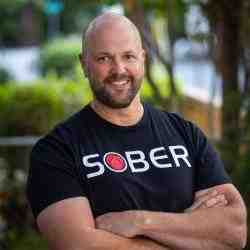
Rising up to reclaim recovery
Faced with social isolation, job loss, or just more uncertainty all around, we all must adapt and find new sources of strength and resilience in this moment. For the 40 million Americans who struggle with substance use or are in recovery, the challenges are especially daunting. For actionable insights, we turn to Ashoka Fellow Scott Strode, a social entrepreneur and triathlete in recovery for 24 years. Scott started The Phoenix in Boulder, CO, 15 years ago. It’s now a national network with “sober active” communities in more than 50 cities that offer free support to people with as little as 48 hours sobriety. The majority of sites, many with gym spaces, are volunteer-led. Ashoka’s Simon Stumpf spoke with Scott this week.
Ashoka insight
You’re not broken, you’re in recovery: Think about the communities you’re part of. How you’re welcomed into them makes a big difference. Here’s Scott on why “the heaviest weight is the front door” and why welcoming in the right way is especially powerful for those in recovery.
Tapping innate strength: Why does the (costly) acute care model for treating addiction often fail? Because it doesn’t activate a person’s intrinsic strength or engage the transformative power of community, Scott says. He shares the origins of The Phoenix and his own recovery journey.
Connection in Covid times: For The Phoenix, transitioning to a strong virtual community has been a priority since the pandemic hit in March. Scott shares more about this evolution and the opportunities it opens up to support more people — in prisons, in rural parts of the country, and more.
Reaching all people, in all communities: Communities of color have fewer pathways to recovery, says Scott. How can we make sure everyone has the opportunity to find, and help grow, a transformative community like The Phoenix? Here’s Scott on equity and inclusion.
